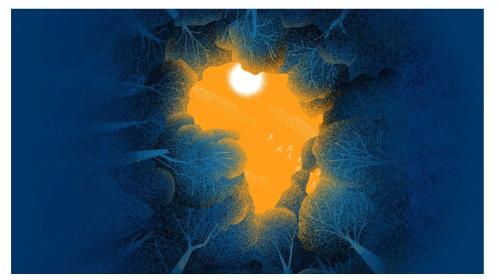Ebola-affected countries shift focus from containment to recovery
This week, several major developments in the fight against the Ebola epidemic took place in Guinea, Liberia and Sierra Leone, as these countries move closer to reaching zero new cases of the virus. On Monday, the International Monetary Fund (IMF) approved financing and debt relief for Sierra Leone worth about $115 million, with $85 million to be disbursed immediately. Meanwhile, Liberia officially started the 42-day countdown toward being declared Ebola-free after completing one week without new cases of the virus, the World Health Organization (WHO) announced on Wednesday. On Thursday, Liberia released its last known Ebola patient from a treatment ward in Monrovia. In Guinea, the WHO, in partnership with the Health Ministry of Guinea, Médecins Sans Frontières, Epicentre, and The Norwegian Institute of Public Health is planning to launch a vaccination campaign on Saturday, March 7, 2015 to immunize individuals who have been exposed to someone with the virus in the region of Basse Guinée—the region currently with the highest number of cases of Ebola in Guinea.
International actors this week also reaffirmed their commitment to the eradication of Ebola and support for the most affected countries. On Tuesday, a conference involving 600 delegates from around the globe was organized by the European Union to mobilize and sustain international efforts in the fight against the Ebola epidemic. The U.N. Secretary-General’s Special Envoy on Ebola, Dr. David Nabarro, described the current phase of the response as “the hardest part and a bumpy road” and encouraged the international community to remain involved as the virus continues to affect thousands in the region. He stated that efforts must be consolidated and reinforced to ensure access to markets, employment, and services to the 22 million people living in the Ebola-affected areas.
Liberian President Ellen Johnson Sirleaf, having met with President Obama to discuss an Ebola recovery plan last week, also spoke at the conference to call for a “Marshall Plan” for the Ebola-affected countries of West Africa. Leaders also recalled that throughout the outbreak, international actors have pledged $4.9 billion, with only $2.4 billion disbursed as of now, and stated that as countries enter the recovery phase, long-term commitment is required to sustain economic recovery.
For more information on post-Ebola crisis recovery strategies, please see AGI senior fellow Vera Songwe’s Foresight Africa 2015 piece: Fighting Ebola: A Strategy for Action.
Hifikepunye Pohamba receives the 2014
Ibrahim Prize for Achievement in African Leadership
This week, the Mo Ibrahim Foundation announced the 2014 recipient for the Ibrahim Prize for Achievement in African Leadership. The prize, decided upon by an independent Prize Committee composed of renowned figures (including two Nobel Laureates—Martti Ahtisaari and Mohamed ElBaradei), is awarded to former heads of state or government, who were democratically elected, served their term as prescribed by the constitution, and demonstrated exceptional leadership. It recognizes African leaders who have made important steps towards sustainably developing their countries and lifting their citizens out of poverty. The prize gives recipients $5 million over a 10-year period and $200,000 per year following this initial period.
This year, the prize was awarded to President Hifikepunye Pohamba of Namibia. His efforts in forging national cohesion and reconciliation during Namibia’s key stages of democratic, social, and economic development captivated the Prize Committee. President Pohamba, first elected in 2004 and re-elected in 2009, is set to leave office this month. He plans to use the prize earnings to assist students from disadvantaged backgrounds to pursue higher education. President Pohamba is the first African leader to receive the prize since 2011. In the prize’s eight years of existence, it has only been awarded four times, with the committee often citing there was no suitable recipient for the year’s prize, which has raised a number of questions on the state of African politics.
Lesotho opposition parties form a coalition government
Last Saturday, February 28, 2015, Lesotho held elections to select a prime minister and national assembly. The elections, held 6 months after an alleged coup, were deemed fair and transparent, the Southern African Development Community (SADC) stated. Earlier this week, conflicting election results were revealed, some prematurely declaring Prime Minister Thomas Thabane as the potential winner. However, the completion of the vote count revealed no clear winner. Lesotho’s parliament has 120 seats, of which the ruling All Basotho Congress (ABC) party obtained 46 seats, the opposition Democratic Congress (DC) party obtained 47 seats, and smaller parties split the remaining seats. On Wednesday, DC leader Pakalitha Mosisili announced the formation of a coalition, collaborating with smaller parties and forming a majority of 61. “The people have decided who they want to be led by. This new government is the will of the people,” DC leader Pakalitha Mosisili told a media briefing in which he announced he would become prime minister.



Commentary
Africa in the news: Ebola summit emphasizes post-epidemic recovery, Namibia’s Pohamba wins Ibrahim African leadership prize, and Lesotho forms a coalition government
March 6, 2015